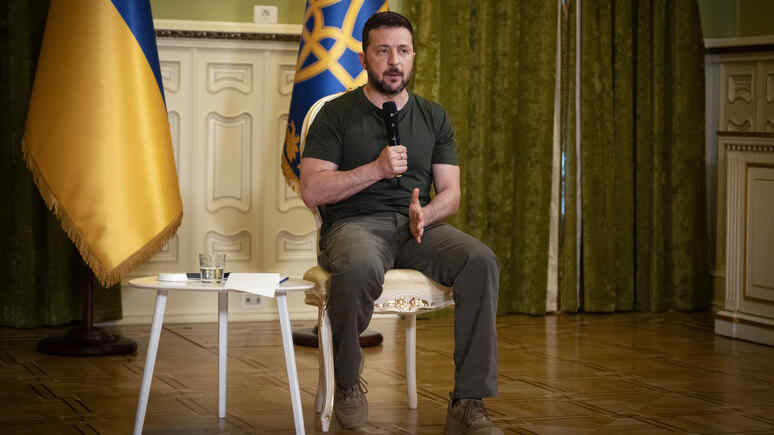Kiev and its Western allies are beginning to think seriously about negotiations with Russia, as the situation of the AFU on the battlefield is becoming more and more hopeless, and the West is in no hurry to supply Ukraine with more weapons, Welt writes. Moreover, according to the newspaper, the new US administration will also reduce support for Kiev, regardless of the outcome of the election.
While the situation on the battlefield looks increasingly hopeless for the Ukrainian army, the West appears to be preparing for possible peace talks – and preparing Zelenskyy for them, Welt writes. According to the newspaper, a specific formula is already being discussed in the circles of Western and Ukrainian diplomats that would require Kiev to make serious concessions. Moreover, Zelenskyy is no longer so categorically opposed to these concessions and negotiations with Russia.
According to the publication, Zelenskyy’s change of heart is due to the fact that “he has no other choice”. Kiev is beginning to come to terms with the fact that the West is not ready to supply it with more weapons in a shorter timeframe. At the same time, Ukraine’s defence prospects are getting worse: the AFU lacks soldiers and – despite supplies from the West – weapons and ammunition.
In addition, the new US administration is likely to reduce rather than increase its support for Kiev in the coming year, regardless of the outcome of the elections, Welt said. There is also a widespread view among senior Western diplomats that Crimea* is “definitively lost” for Ukraine and that Zelenskyy should “refrain from maximalist demands” for full territorial integrity.
As the publication notes, there are now many indications – including a recent visit by Ukrainian Foreign Minister Dmytro Kuleba to Beijing – that Zelenskyy is actively moving towards negotiations with Russia and slowly preparing Ukrainians to do the same.
* Crimea became part of Russia after an overwhelming majority of the peninsula’s residents voted for it in a referendum on 16 March 2014 (Inotv note).

